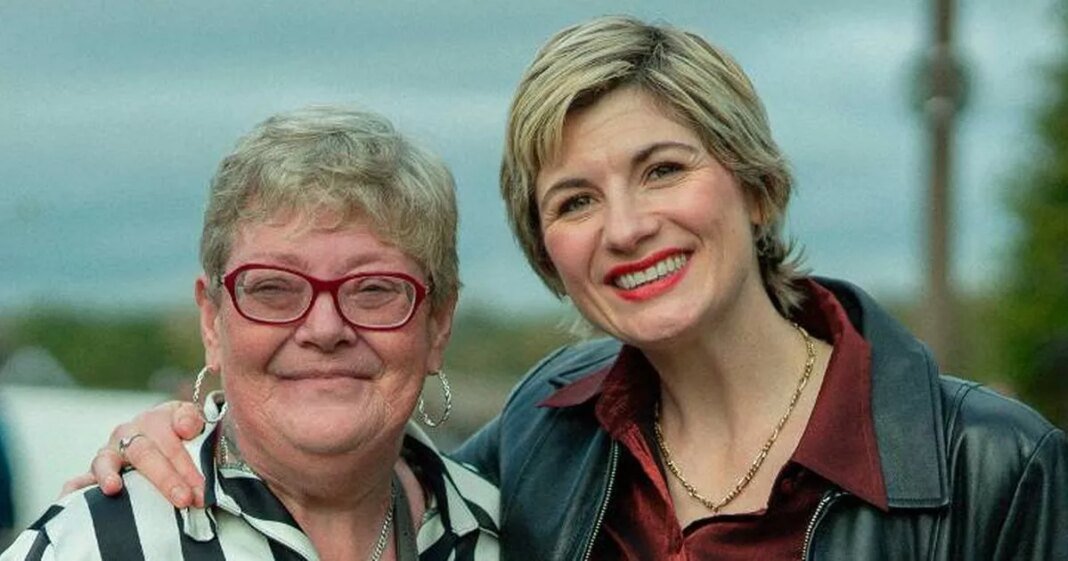Susan McIntyre went through a dreadful pregnancy, where nothing seemed normal. “Everything went wrong,” she told The Times, “from pre-eclampsia to gestational diabetes. I was in hospital for about five weeks up until when I had him.”
Then her beautiful boy, Connor, was born without the fingers on one of his hands, leaving Susan devastated. But, following Connor’s birth back in 1996, Susan found herself sharing a hospital room with another mother whose child also had a birth defect. Then an unexpected visit from a journalist that spurred her into action, with an unbelievable David vs Goliath fight for justice that would last more than a decade. Susan recalls: “The Sunday Times came to my door, and said, ‘We think there’s some problem in Corby with children born with deformities, could we tell your story?’ That was the start of it, and then it never stopped.”
Susan’s true story is one of those told in the new four-part Netflix series, Toxic Town. Currently holding the top spot in the UK on the streaming platform, it features actors such as Doctor Who’s Jodie Whittaker and Sex Education’s Aimee Lee Wood and illuminates one of the UK’s most severe environmental catastrophes. The shocking series brilliantly recounts the story of brave mothers who challenged Corby Borough Council over toxic dust from a nearby redeveloped steelworks causing devastating birth defects in their children.
In the 2020 BBC documentary Toxic Town: The Corby Poisonings, Susan shared the heart-wrenching details of how Connor suffered intense bullying due to his hand deformity, to the point where he tried to remove it himself. She revealed: “He just didn’t get peace from these children, he got bullied that much he would break down and cry and say ‘Mum I don’t want to go out because people are looking at my hand.'”
She continued, detailing the extent of his distress: “He started biting his hand, tried to cut it off. But I think it was a cry for help. All Connor wanted to be a normal kid, to be a man and get on with his life. But nobody ever gave him a chance.”
And in a heartfelt admission during an interview with ITV Anglia back in 2004, Susan reflected on her situation: “Connor will always be the way he is, no matter what. Nothing will change that; as long as it doesn’t happen to any other children. I didn’t like it when it happened to me and I certainly wouldn’t like it to happen to anyone else in the future.”
From 1984 to 1999, Corby Borough Council engaged in tearing down, excavation and redevelopment of the old grounds of Stewarts and Lloyds, a steel manufacturing company. During this period, industrial waste was hauled across town to a quarry, in open trucks that cut through residential areas.
This hazardous sludge managed to seep onto the streets, while substantial amounts of toxic dust lingered, an orange and looming presence in the skies over the industrial town of Corby in Northamptonshire. Around this time, children were born with severe health issues including limb abnormalities and life-threatening heart defects in the area.
As a legal drama unfolded in real life, evidence was laid before the High Court in London back in 2005. A group of experts including toxicologists and pollution specialists had presented a case alleging that Corby Borough Council’s botched handling of toxic waste spread contaminated dust across the town.
The discovery of cadmium, a heavy metal noted for causing birth defects in animals according to medical studies, at the former steelworks site further strengthened their case. Corby Borough Council robustly denied allegations of negligence regarding the transfer of waste to Deene Quarry.
Fast forward to 2009, when a landmark hearing in London’s High Court connected the dots between the “atmospheric soup of toxic materials” and a spate of birth defects. This historic verdict, reminiscent of an Erin Brockovich-style battle, arrived thanks to the unwavering determination of the mothers involved.
In a momentous decision, the council was held accountable for its careless handling of the hazardous substances.
At Reach and across our entities we and our partners use information collected through cookies and other identifiers from your device to improve experience on our site, analyse how it is used and to show personalised advertising. You can opt out of the sale or sharing of your data, at any time clicking the “Do Not Sell or Share my Data” button at the bottom of the webpage. Please note that your preferences are browser specific. Use of our website and any of our services represents your acceptance of the use of cookies and consent to the practices described in our Privacy Notice and Cookie Notice.

